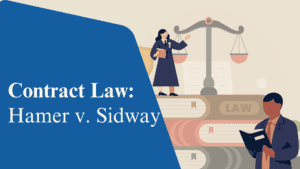
Keywords: ADR, mediation, arbitration
1. What is a dispute resolution?
Civil law intersects with almost every aspect of our lives. It does not matter if you are a small business owner who is having financial disputes with your business partners, a tenant who was evicted by the landlord without prior notice, or even a customer who wants to cancel the gym membership, we all face legal problems in life.
Legal problems can appear overwhelming because the time and money it takes to litigate in court is often tremendous. Fortunately, there are other dispute resolutions you can take, rather than starting litigation in court.
What is Alternative Dispute Resolution (ADR)?
Not every dispute needs litigation in court. There are several other methods we can use to resolve legal disputes. These methods are referred to as Alternative Dispute Resolution (ADR). Common forms of this resolution include mediation and arbitration.

What disputes can be settled through Alternative Dispute Resolution?
Alternative Dispute Resolution can be used to solve almost any type of dispute, including family disputes, personal injury, product liability, securities, housing, contracts, etc., with few exceptions.
Disputes that can be settled through ADR normally include:
(1) Business, trade, commerce related disputes, such as those involving:
- Contract disagreement
- Performance of specific acts
- Landlords and tenants
- Banks and their account holders
- Customers and suppliers
- Real estate
- Insurance
(2) Relationships related disputes, such as those involving:
- Partition of property among the family
- Marriage, maintenance, custody of children
- Partners relating to partnership
(3) Tort and liability related disputes, such as those involving:
- Claims for accidents or negligence
(4) Other types of disputes between:
- Employers and employees
- Neighbors
- People who live together
For more reading on this topic, we recommend the article ‘Ten Things to Think About Before You Sue.’

2. What is mediation?
Mediation is a process of Alternative Dispute Resolution (ADR), where the parties in conflict invite a neutral third party to act as a mediator. The goal of mediation is to help disputants reach a consensus on their own through a mediator.
The job of the mediator is to facilitate a discussion between conflicting parties in order to develop a non-binding solution acceptable to both sides of the dispute. The solution proposed by a mediator is advisory and not legally binding on the parties. In other words, the court cannot enforce the solution developed through mediation.
How does mediation work?
A trained mediator will work with the parties involved in the dispute to explore the underlying interests of their positions. Working with disputants together and sometimes separately, a mediator can be effective at allowing the disputants to fully express their grievances. A more sustainable and voluntary solution can often be reached through mediation.

How much does mediation cost, and who pays for it?
The majority of mediators charge an hourly rate for their services, typically ranging between $160-210 (USD) per hour. However, rates are also dependent on a mediator’s professional and educational background. Therefore, a mediator who was a former commissioner or judge may charge up to $500 per hour.
- The average hourly rate is between $160-210 per hour.
The total costs of a mediation is usually determined by the type of case, the complexity of the dispute, and the level of the confrontation. That being said, the total cost is normally split by the conflicting parties at the end of the mediation session.
As divorce is one of the most common reasons to retain a mediator, let’s take a look at the statistics about divorce mediation fees to have a glance at what might be the total charge of a mediation case.
On average, it takes about 12-18 hours for couples undergoing divorce to complete a divorce mediation, and it costs $2,000 – $7,000 in total to finish a divorce case through the mediation process. Once again, the total cost is normally evenly split between the spouses. Therefore, a couple going through a divorce mediation process can expect to pay between $1,000 – $3,500 each.
- It typically takes around 12-18 hours to complete a divorce mediation case.
- The average cost of a mediation in divorce case is around $2,000 – $7,000.

What are the pros and cons of mediation?
Advantages of Mediation:
- Any parties can quit at any point during the mediation process, and a resolution does not necessarily need to be found.
- Mediation permits the disputants to pursue arbitration or litigation at any point, even after the mediation.
- The parties in the dispute are generally able to decide the timeline, the form, and the process of the mediation.
- The cost of mediation is normally significantly lower than arbitration and litigation.
- Unlike litigation where anybody can access the court records or even attend the trial, the mediation process does not require the parties to disclose anything to the public.
- The mediation process is almost always faster than court proceedings.
Disadvantages of Mediation:
- Mediation does not guarantee a settlement. Aside from the fact that the cost of retaining a mediator may not be recovered, the uncertainty of mediation can also frustrate people undergoing the process.
- The result of the mediation is not legally binding to either party.
3. What is arbitration?
Arbitration is a form of Alternative Dispute Resolution (ADR), where conflicting parties retain neutral legal experts, arbitrators, to make a decision concerning the dispute. The arbitrator’s decision is binding to both parties and can be enforced by the court if necessary.
How does arbitration work?
During the arbitration process, the arbitrators act as judges. Arbitrators usually hold an informal hearing to listen to the arguments of the conflicting parties. After reviewing the evidence presented by both parties, the arbitrator will then render a binding decision. The decision can be confidential and may not be appealed.
However, virtually every aspect of the arbitration process can be negotiated on by the conflicting parties. Aspects ranging from whether lawyers should be present to which standards of evidence should be adopted are all negotiable.
For a greater understanding of when to use arbitration, check out the article ‘Using Arbitration to Resolve Legal Disputes’.
What institutions provide arbitral services?
Three globally recognized arbitral services are:
- ICC Arbitration
- JAMS
- AAA (American Arbitration Association)

How much does arbitration cost?
The majority of arbitrators charge a daily rate for their services. The typical rate of an arbitrator is between $700 – $2,000 per day, depending on the mediator’s professional and educational background. There are also other fees to consider, such as filing fees, hearing fees, attorney’s fees, and other necessary expenses.
ICC Arbitration provides a Full Arbitration Cost Calculator for people to estimate the full arbitration fee.
According to the Full Arbitration Cost Calculator, an ordinary arbitration case that involves $100,000 in disputes and requires 1,000 hours of legal work can cost roughly $68,000 per party.
For more on arbitration expenses, check out the article ‘How much does arbitration cost?’
What are the pros and cons of arbitration?
Advantages of Arbitration:
- Ranging from whether lawyers should be present or not to which standards of evidence should be adopted are all negotiable. Virtually every aspect of the arbitration process can be negotiated by the conflicting parties.
- Unlike the litigation, in which anybody can access the court records or even attend the trial, the arbitration process does not require the parties to disclose anything to the public.
- Unlike mediation, arbitration guarantees a binding decision that can be enforced by the court.
- The decision of the arbitration normally cannot be appealed, making it very decisive.
- Arbitrators are generally the experts of the subject matter of the dispute.
- Unlike litigation, arbitration does not involve the potential use of amateurs (people without specialist knowledge) as jurors.

Disadvantage of Arbitration
- Even though the process of arbitration is usually faster than court proceedings, the cost of arbitration is significantly higher than mediation. Some arbitration cases even cost more than litigation in court.
For more on the advantages of arbitration, check out ‘The Advantages of Arbitration’.
4. Summary
Let’s briefly recap this article’s main points.
● Alternative Dispute Resolution (ADR) settles 3 main types of disputes: business, trade, and commerce related disputes; relationship related disputes; and tort and liability related disputes.
● Mediation is a process of ADR. It is conducted using third-party mediators to help conflicting parties reach a consensus. Mediation is seen as advice and is not legally binding. The process is generally faster than court proceedings, and offers parties more privacy, affordability, and flexibility.
● Arbitration is a form of ADR. It is conducted using neutral legal experts called arbitrators. Decisions made during the arbitration process are legally binding, though they can be negotiated. Arbitration is significantly more expensive than mediation, however it offers parties equal flexibility, privacy, and more professionalism and certainty.

